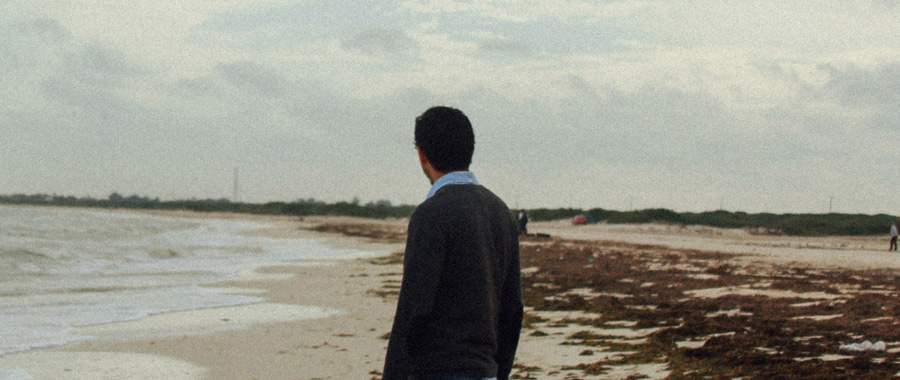The exploration of religious prejudice often unveils a labyrinthine journey, one that traverses continents and cultures. Within the context of the Bahá’í teachings, this voyage can serve both as a personal odyssey and a broader narrative that marries the East and West. The doctrine espouses a profound recognition of the oneness of humanity, an ethos which, when embraced, holds the potential to dismantle deeply ingrained prejudices and transcend parochial divisions.
At the crux of overcoming religious prejudice lies the understanding of *unity in diversity*. The Bahá’í Faith posits that humanity is a single entity, reminiscent of a mosaic composed of myriad colors and shapes. This belief necessitates a paradigm shift: viewing others not through the prism of religious differences, but rather as integral contributors to the tapestry of human existence. The journey from East to West serves as a microcosmic representation of this divine mandate, illustrating how disparate cultures might converge under the banner of shared values.
As we embark on this journey, it is imperative to acknowledge the seismic shifts in perceptions that can occur when one is exposed to alternative viewpoints. In many Eastern traditions, religious convictions are often interwoven with daily life, reflecting a system where belief and practice are undeniably linked. Conversely, in various Western contexts, there exists a marked trend of secularization, where religion may be regarded with skepticism or even disdain. Navigating these contrasting landscapes can illuminate the biases that shape our worldviews and compel us to assess our own assumptions critically.
Central to this discourse is the role of education in combatting religious prejudice. Bahá’í teachings underscore the transformative power of knowledge and articulate a vision where education serves as a bastion against ignorance. The concept of *critical consciousness* emerges—a term used to describe the ability to engage in reflective analysis regarding societal norms and prejudices. By fostering an academic environment that encourages inquiry and dialogue, individuals are afforded the tools necessary to dissect their own biases and challenge the status quo.
Moreover, the practice of *consultation*, a pivotal Bahá’í principle, offers a methodology for constructive discourse devoid of prejudice. In a world rife with dogmatic fervor, cultivating an ethos of respectful engagement can illuminate the vast commonalities that transcend religious affiliations. Through this collaborative approach, participants are empowered to confront their own misconceptions while simultaneously weaving stronger interreligious bonds.
Another salient aspect of this journey involves the acknowledgment of historical narratives—specifically, how the legacy of colonialism and cultural imperialism has fostered divisions among faiths and peoples. In many instances, Western colonial powers approached Eastern societies with a predisposed sense of superiority, often disregarding the inherent value of indigenous beliefs. This historical context can cast a long shadow over contemporary interactions, perpetuating cycles of misunderstanding and mistrust. Thus, grappling with historical injustices becomes essential in dismantling modern prejudices.
In engaging with Bahá’í teachings, one discovers the concept of *progressive revelation*, which elucidates the idea that religious truth is not static but evolves over time. This perspective advocates for an inclusive understanding of spirituality, whereby different religious traditions are recognized as chapters in a divine narrative rather than as competing ideologies. Embracing this notion can inspire a more open-minded approach to intercultural exchanges, dismantling rigid dichotomies between ‘us’ and ‘them’.
Another notable facet of this transformation is found in the emphasis on *service to humanity*. The Bahá’í perspective emphasizes that true spirituality is expressed through acts of service, engendering a sense of collective responsibility. Engaging in altruistic efforts—whether through social action or community building—serves to diminish barriers between individuals of varying faiths. By focusing on shared objectives, we can build solidarities that transcend religious divides and catalyze momentous change.
The anecdotal opportunities presented through personal stories can further elucidate the journey from religious prejudice to acceptance. Narratives that encapsulate personal transformations can illuminate the path toward empathy and understanding. Individuals who have undergone profound shifts in their perspectives often serve as catalysts, inspiring others to confront and reevaluate their prejudices. These stories become compelling conduits that Drive home the fact that change is not only possible but necessary for the advancement of an inclusive society.
As we reflect on the transformative potential of the Bahá’í Faith, it is crucial to recognize that the journey from East to West is not merely geographical but metaphorical. It signifies a movement from misunderstanding to insight, from division to unity. The path to overcoming religious prejudice is laden with challenges; however, it also brims with the promise of a more harmonious existence. By embracing the principles of the Bahá’í teachings—unity in diversity, education, conversation, recognition of historical contexts, and service to humanity—we embark on a collective quest towards genuine understanding and acceptance.
Ultimately, this journey calls upon individuals to cultivate a spirit of inquiry and openness. In doing so, we foster an atmosphere where curiosity reigns supreme, allowing us to explore the depths of our shared humanity. By transcending the confines of prejudice, we unlock the potential for unprecedented connections that propel us towards a brighter, more united future.
